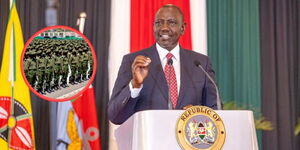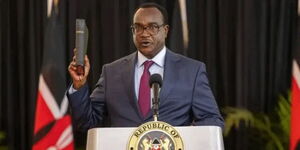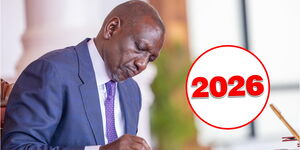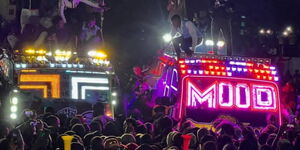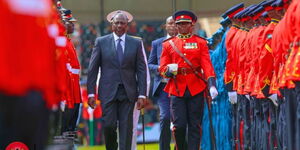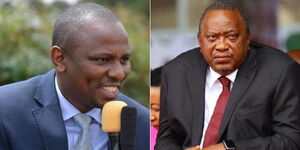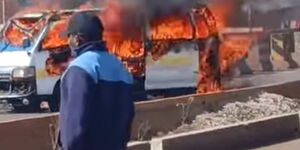Kenyan police officers in Haiti are facing increasing pressure as expectations rise for them to curb the growing gang violence in the country. Six weeks after their arrival, questions are mounting over their effectiveness in tackling Haiti's notorious criminal gangs.
The situation took a new turn as reports emerged on August 9, suggesting that Haiti may not see the election of a new president by the February 2026 deadline, as previously agreed in a political accord involving various political parties and civil society groups.
This development casts uncertainty over the role of the Kenyan contingent in the ongoing crisis.
When the first group of 200 elite Kenyan police officers arrived in Port-au-Prince on 25 June, they did so with much fanfare and high hopes. Clad in combat gear, they disembarked from their Kenya Airways flight, chanting in Swahili and waving the Kenyan flag. Their arrival was meant to signal the beginning of a robust effort to support Haiti's National Police (PNH) in their struggle against violent gangs that have terrorised the country for years.
Initially, the Kenyans were warmly welcomed by both the Haitian government and local media. Radio Independante FM, a popular station in Haiti, greeted the Kenyans in Creole, declaring, "Haiti is the country of all Africans. Since you are black, Haiti is your home... You Kenyan soldiers are at home and must be welcomed to help fight these wasters [the gangs] that prevent us from living in our country."
However, the optimism that greeted their arrival has given way to frustration. Many Haitians now express disappointment at the pace and impact of the Kenyan mission.
Despite joint patrols with Haitian police in Port-au-Prince, the gangs seem to have tightened their grip on the city's outskirts. In some cases, gang members have attacked and burned police stations, further destabilising the region.
Local media and social platforms have become hotbeds of criticism, with calls for "actions not words" and demands for "concrete results." Critics accuse the Kenyans of being more theatrical than effective, with some even labelling them as "tourists" rather than peacekeepers. A particularly scathing article from AyiboPost asked, "What are the Kenyans waiting for to act against the bandits?"
Adding to the tension, the Kenyan contingent has already suffered casualties. On July 30, a Kenyan police officer was shot in the shoulder during a skirmish with gang members in Port-au-Prince. That same day, the Haitian police chief, Rameau Normil, and Kenyan commander Godfrey Otunge, held a press conference announcing the deaths of over 100 "bandits" during joint operations under a state of emergency. Yet, these statements have done little to quell public scepticism.
Public confidence took another hit when videos surfaced online showing Haitian government officials and their Kenyan police escorts retreating under heavy gunfire from the General Hospital in downtown Port-au-Prince. This incident further fueled doubts about the Kenyan force's ability to control the situation.
Despite the mounting criticism, Haiti's interim Prime Minister Garry Conille remains supportive of the Kenyan presence. In an interview with BBC HARDtalk, he acknowledged the need for external assistance given the PNH's limited manpower. "We do need the help... yet it’s coming in too slow, and Haitians are growing impatient," he admitted. Conille also defended the deployment of Kenyan officers, noting their adherence to local laws and procedures, while emphasising that their role is to support, not replace, the Haitian police.
Nevertheless, the Kenyans continue to face defiance from Haiti’s gang leaders. In a provocative video posted online, Jimmy "Barbecue" Chérizier, a notorious gang leader, taunted the Kenyan forces, while other gang leaders have similarly mocked the authorities, boasting about their continued attacks.
The Kenyan mission has tried to counter the negative narrative by launching an official social media account, to highlight their activities and successes. However, their reports of "significant success" and a "gradual return to normalcy" have been met with scepticism, with many Haitians dismissing them as "propaganda."

